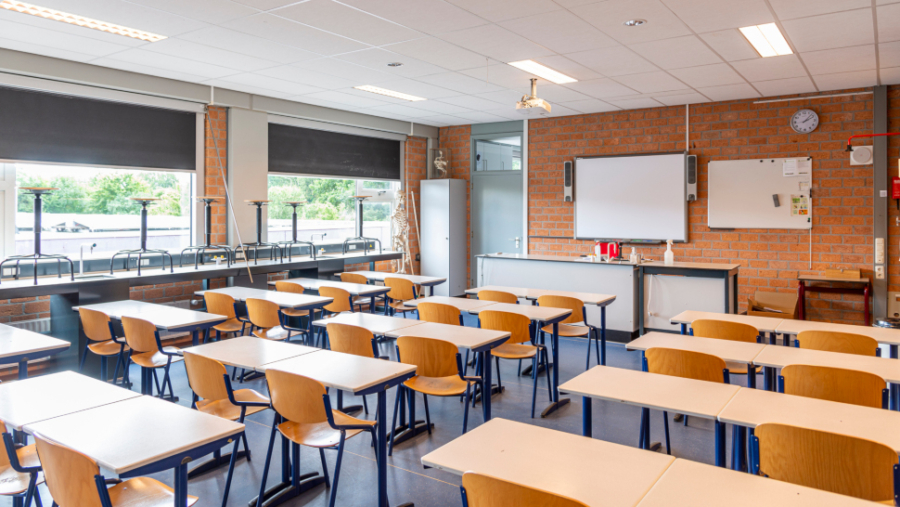

The statutory guidance Keeping Children Safe in Education (‘KCSIE 2023’), which is in draft form at the time of writing, introduces a duty on schools to have procedures in place to deal with safeguarding allegations that occurred when an individual or organisation was using their school premises for non-school activities for children. It should also be applied to vulnerable adults.
These activities include, for example, community groups, sports associations, or service providers that run extra-curricular activities. KCSIE 2023 confirms that, in this situation, as with any safeguarding allegation, schools should follow their own safeguarding policies and procedures, including informing the LADO.
When services or activities taking place on school premises are provided under the direct supervision or management of school staff, a school’s own safeguarding policy will apply in relation to any safeguarding concerns or allegations.
However, where services or activities are not under the direct supervision or management of the school, the school is required to seek assurances that the individual or organisation has appropriate safeguarding and child protection policies and procedures in place.
The school will also need to ensure that there are arrangements in place for the individual or organisation to liaise with the school on safeguarding matters where appropriate. This duty applies regardless of whether or not children who attend any of these services or activities are on the school roll.
What should providers have in place?
When considering the safeguarding arrangements organisations have in place schools should have regard to the DfE’s non statutory guidance ‘Keeping children safe in out-of-school settings’ (April 2022). This guidance applies to all organisations who have functions relating to children and sets out the basic safeguarding and child protection requirements all organisations must have in place, including:
- A child protection policy and written procedures for dealing with concerns/allegations.
- Awareness of the specific safeguarding issues that can put children at risk of harm and to undertake appropriate training (e.g., abuse and neglect, peer on-peer abuse, etc). Staff and volunteers should also be aware of what to do if they have concerns about a colleague who may pose a risk of harm to children. Depending on the size of the organisation they may also be required to appoint a suitably trained Designated Safeguarding Lead (DSL) and Deputy Designated Safeguarding Lead (DDSL).
This guidance also sets out the basic requirements for organisations to ensure the suitability of all staff and volunteers – including undertaking appropriate pre-employment checks – and to have in place a written health and safety policy which includes a risk assessment section.
What does this mean for schools?
Schools should look to update their child protection/safeguarding policy to ensure the procedure for responding to safeguarding concerns about other organisations or individuals using the school site is clearly set out. The practical impact of this is that schools will become involved in relation to safeguarding allegations that do not relate to school staff or pupils of the school. Schools may have concerns from a data protection perspective as to whether and how to handle such an allegation including data responsibilities.
The obligations in KCSIE are clear that the school is required to inform the LADO in the usual way, and as part of carrying out this duty, the school is likely to be processing personal data about individuals with whom they have no relationship. Schools should aim to ensure that this duty to inform the LADO – and any other relevant agency – is clearly referenced in any written agreement. The duty to inform the LADO in this context should override any data protection concerns and schools are able to rely on their legal obligations under KCSIE in this regard.
The school may also need to ensure that the organisation or body responsible for the non-school activity contacts the LADO if required. As part of any safeguarding allegation there should always be a ‘lesson learned’ process on conclusion to see if the school could take steps to prevent or mitigate future risk. This may include amending policies, procedures, and any contractual arrangements and is often part of a conversation with the LADO. This should be included as part of any review process under this element of KCSIE.
We advise schools to review any lease or hire agreements currently in place. Agreements may require updating to include assurances that the hiring organisation has:
- Appropriate safeguarding and child protection policies – and agreement from the hiring organisation that the School may inspect these as appropriate.
- Undertaken appropriate pre-employment checks for all staff and volunteers, such as the appropriate level of criminal records checks (Disclosure and Barring Service (DBS) checks), including a ‘children’s barred list’ check where relevant for the role.
- Conducted their own risk assessment based on the organisation’s activities and that they will provide first aid supplies that relate to the risk assessment – if not provided by the school.
The lease or hire agreement should also require the organisation, in the event that an allegation is made relating to an incident that occurred whilst using the school premises, to notify the school’s DSL (or DDSL) within a specified time frame and that the organisation may also be required to notify the LADO and any other relevant agency.
Schools are required to ensure that the DSL (or DDSL) can be contacted and/or is available at all times the school premises is in use by children. Schools leasing their premises outside of usual school hours – including school holidays and evenings/weekends – will need to ensure that the DSL (or DDSL) is available to contact during these times.
The DSL (or DDSL) will not necessarily need to be on the premises during this period, but schools will need to consider an appropriate method of contact (via telephone/email) and ensure that the method for contacting the DSL/DDSL is clearly communicated to the hiring organisation.
In the event an allegation/concern is reported by the hiring organisation to the school they should follow their own safeguarding policy and procedures, which should include informing the LADO in certain circumstances. The hiring organisation should, as part of their own procedure, notify the LADO where necessary however schools should also make contact with the hiring organisation and LADO to confirm that this has happened.
It should be made clear to the hiring organisation that the above safeguarding requirements are conditions of use and occupation of the premises and that failure to comply with these will lead to termination of the hire or lease agreement. Schools may wish to contact their legal advisers for assistance when reviewing any lease agreements.
Schools should consider this advice alongside the other KCSIE 2023 key changes included in the draft publication. We have prepared a separate note setting out these changes that can be viewed here.
We have also prepared a separate note on another significant change under KCSIE 2023 relating to ‘Filtering and monitoring in schools’.










